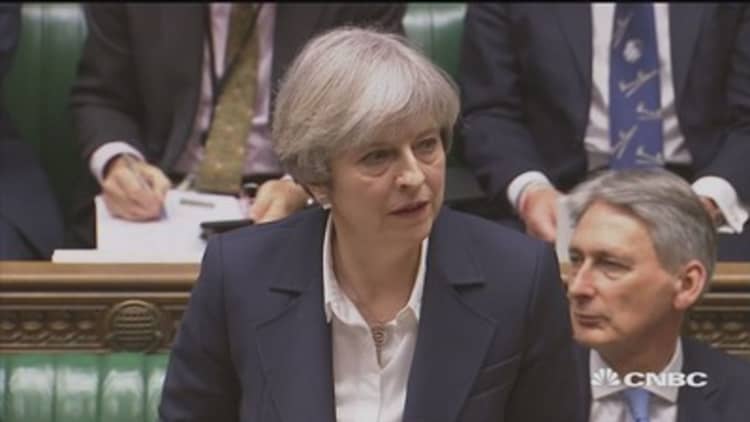
The European Union's response to the official triggering of Brexit negotiations by the U.K. was tinged with a sentiment of regret and sadness.
"There's no reason to pretend this is a happy day, neither in Brussels nor in London," President Donald Tusk of the European Council said shortly after receiving the official notification from the U.K. that it is withdrawing from the EU.
In an emotive, yet short, address to the media, Tusk said that paradoxically Brexit has made the other 27 European countries "more determined and more united than before."

The representative of the European heads of state vowed to protect the interests of the 27 remaining members during the negotiations, including the rights of EU citizens.
Click here to read the full letter that Theresa May sent to the EU
"This is about damage control. Our goal is clear: To minimize the costs for the EU citizens, businesses and member states," Tusk said.
The chairman of the European summit concluded his address stating: "We already miss you."
Tusk will present the European guidelines for the Brexit negotiations Friday morning. The 27 remaining countries will reconvene on April 29 to agree on their joint position to the Brexit talks.
Very difficult and long road ahead
The European Commission - which will represent the 27 countries in the negotiations with the U.K., has tried to dismiss comments of division within the bloc and pledged to speak with one voice.
However, its main negotiator admitted that Wednesday was just the first day of a "very difficult and long road".
Michel Barnier, the EU's negotiator, said on Twitter the executive is going to be "firm" on ensuring the rights of EU citizens during this process.
In a timeline explaining Brexit, the commission admitted the actual negotiating time is roughly 18 months - not the two years that the so-often-mentioned Article 50 states. This is due to EU proceedings, which include the need to take the final deal to parliamentary ratification.
There are increasingly more doubts that the whole process is going to be concluded before midnight on March 29, 2019. European lawmakers have opened the door to a transitional deal after that date "to ensure that custom controls and barriers on trade are not enforced on day one of Brexit," but such arrangements may not last beyond three years, the Guardian reported.


